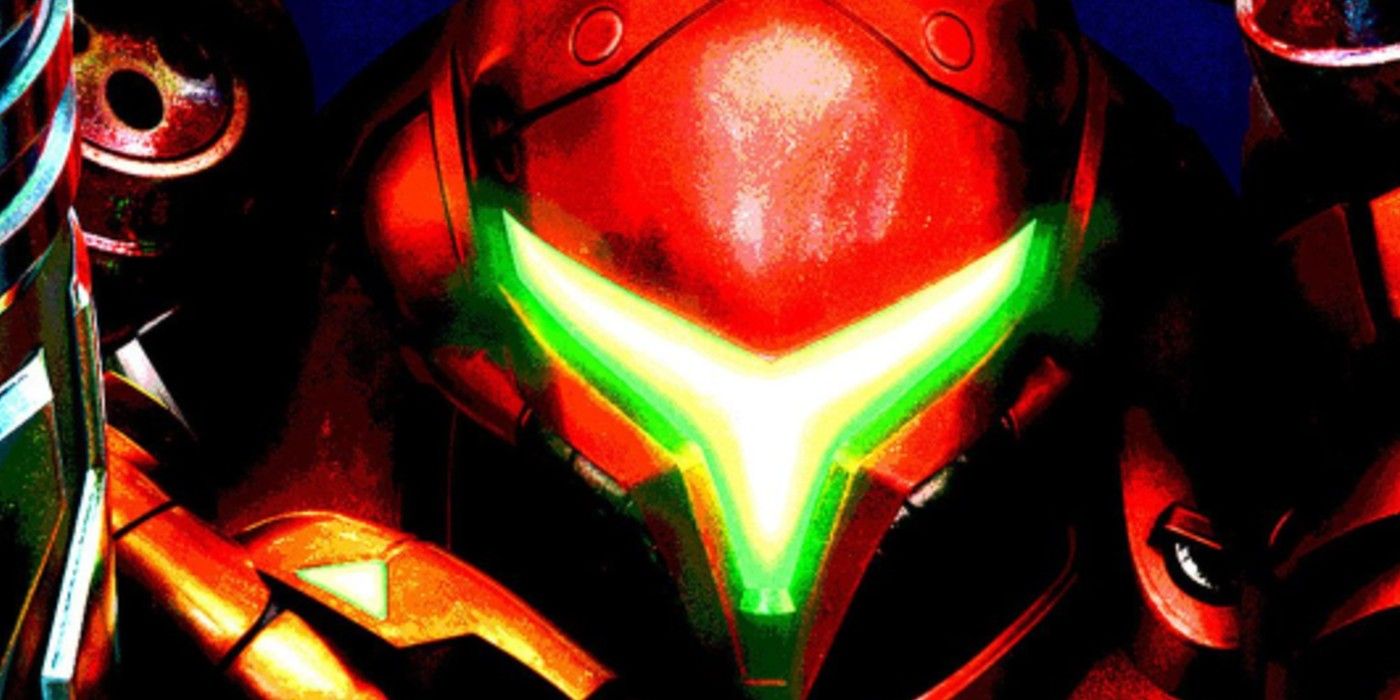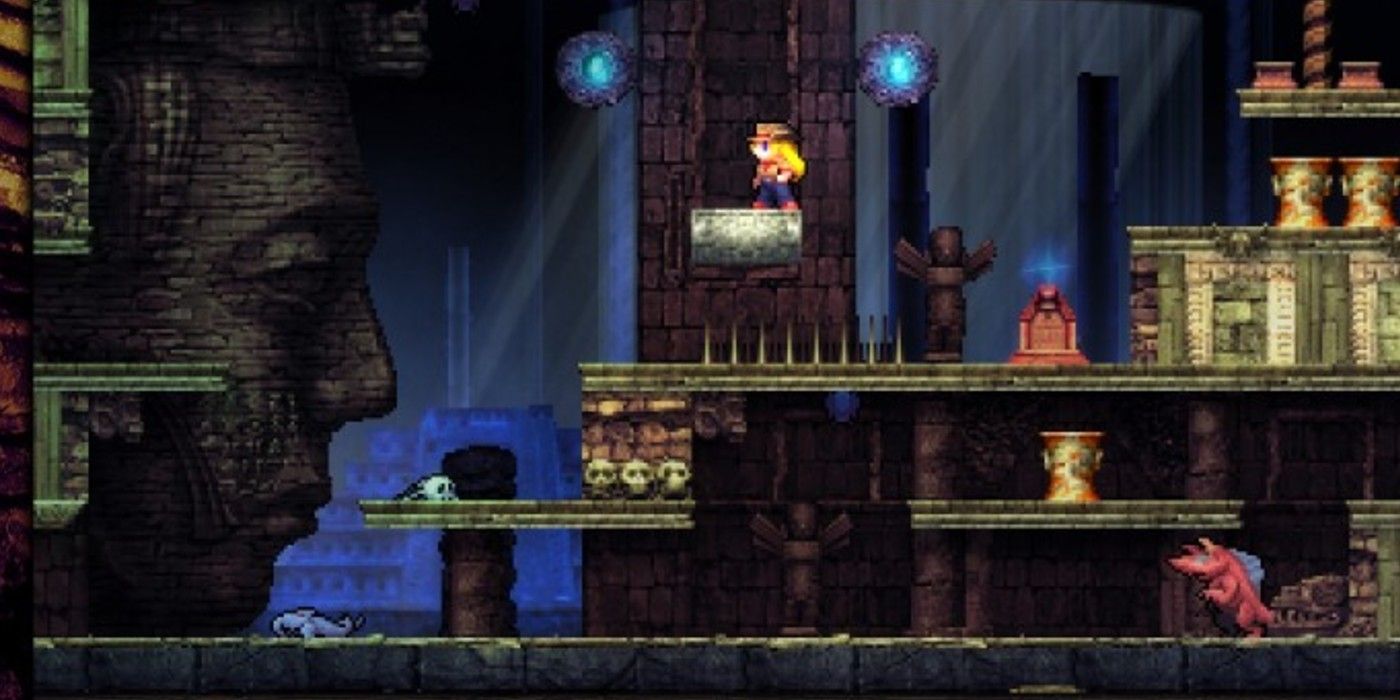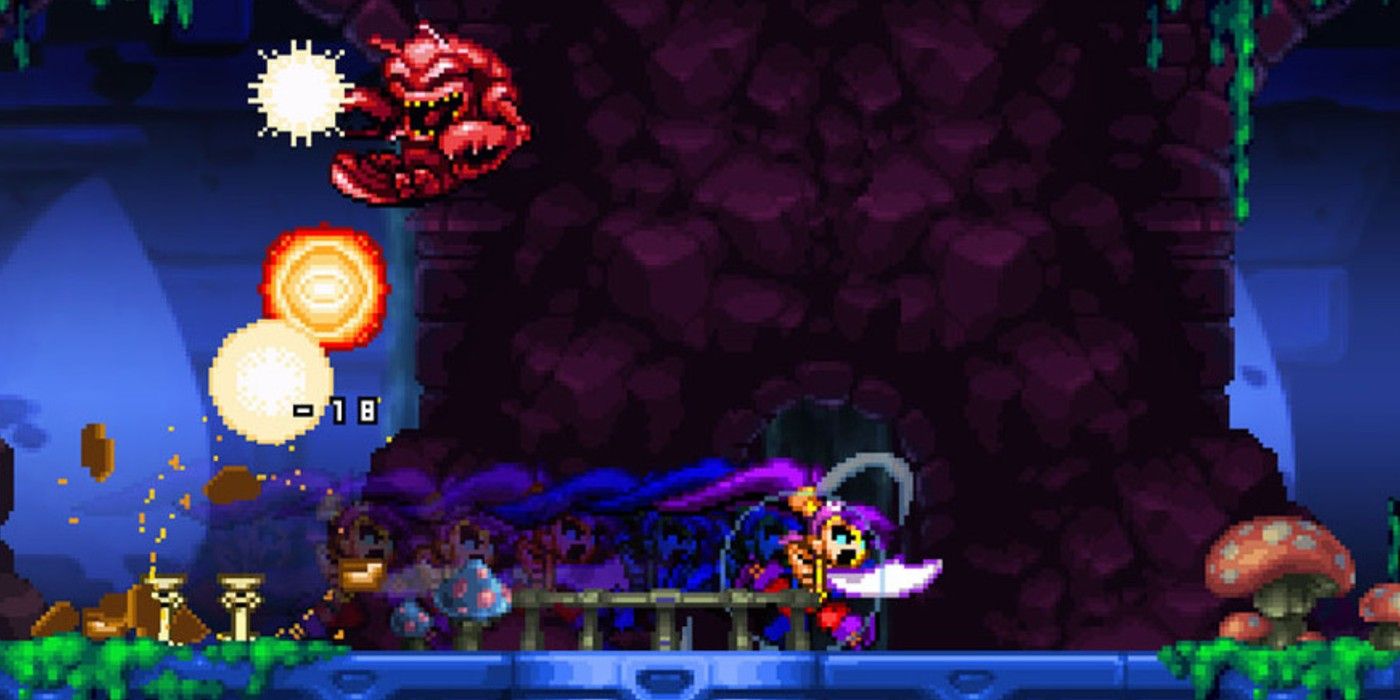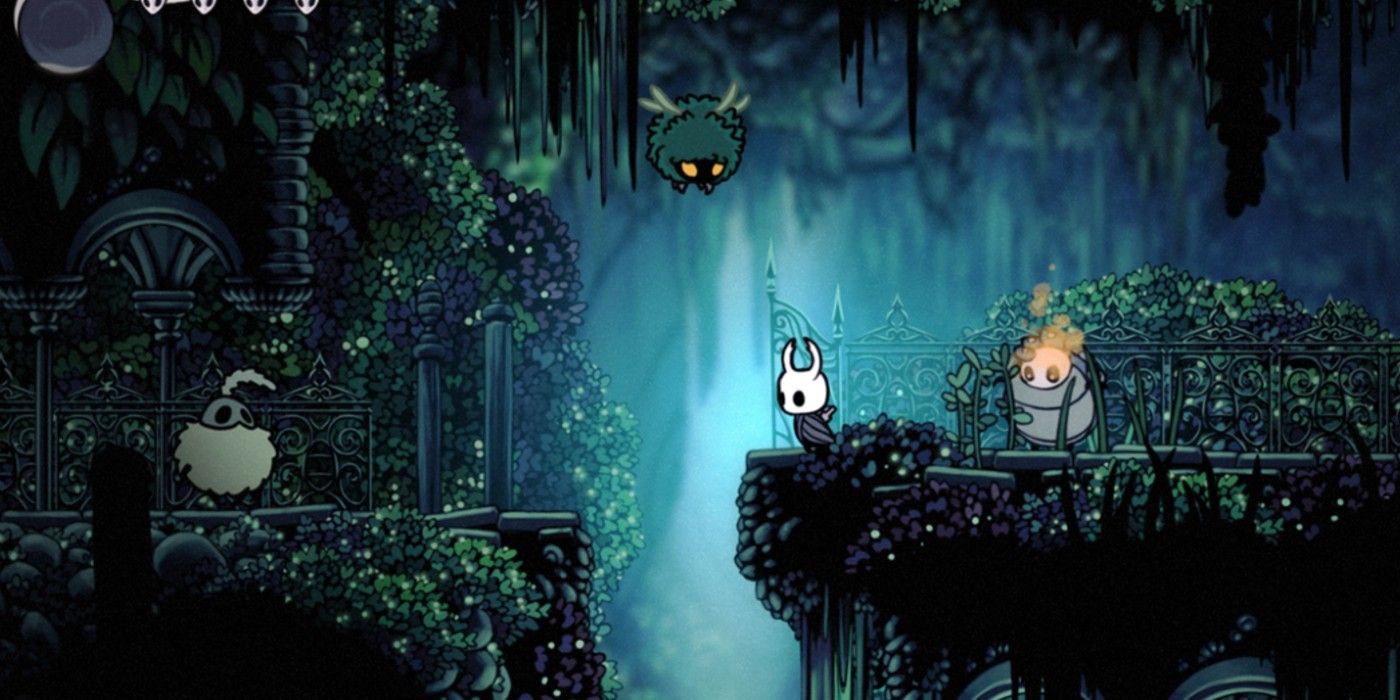If you describe a video game to a gamer as a "Metroidvania," most will know what you're talking about. It's a term that has been passed around and used for well over a decade, if not longer. And why not? As a descriptor, it does its job perfectly. When you use the term, people know what you mean. Specific gameplay designs come to mind and it is a distinct style that is, for the most part, entirely distinctive with no other style mimicking it similarly.
However, the same could be say about the terms "Mario clone" and "Doom clone". If you were moving to the right and jumping over obstacles, that game was a "Mario clone." If you were in the first-person perspective and shooting a gun, that game was a "Doom clone." Back when these games were new ideas, they didn't have a proper name to call it. There was no genre to categorize it under. And like we do with a lot of things, we decided to describe it by closely comparing it to something else we feel others will know.
This might work at first but it's problematic. In terms of defining a genre, it does nothing to describe what you're playing. The name or phrase that's used depends heavily on another title that you have (hopefully) played. It works as a descriptor. If someone has played the game you're referring to, then you should be fine. However, if not, this type of definition doesn't stand on its own.
This is why the term "Metroidvania" is problematic. For those who don't know, the term "Metroidvania" comes from combining two different games that play similarly: Metroid and Castlevania. Specifically, Castlevania: Symphony of the Night. While the Metroid series was around before Castlevania: Symphony of the Night was released, that was the game that coined the term. So this is a style of video game that is defined by how similar it is to these two games. Furthermore, they have been defined by this term for over 20 years now.
We shouldn't be using this term as a genre name for the reasons I detailed before. It doesn't matter that it has been used up to this point without issue. It's a name that only works if you are in the know with video games. Again, if you know what Metroid and Castlevania: Symphony of the Night is, then you know what type of game is being talked about. However, if not, then you won't.
Making things a bit more complicated, while this descriptor refers to the entire Metroid series, it's only referring to specific titles of Castlevania titles. Earlier Castlevania games were action platfomers. This means the definition is slightly inaccurate or at the very least, isn't detailed enough. Perhaps a better name would've been "MetroidSymphony."
Because of this, we don't call "Metroidvania" games Metroidvanias anymore. So, what do we call them going forward? Platform-Adventures. And that's all!
There does exist a genre name for these type of games and it's Platform-Adventure. That is to say, it's a combination of a platformer and an adventure game.
Now, this isn't a bad descriptor. Let's think about what a Metroidvania game actually encapsulates. You do a lot of jumping in these games. In fact, it's your main form of traversal. The game also has a lot of elements from adventure games. One of the defining characteristics of Metroidvanias is its non-linearity. Unlike most platfomers at the time where your objective was always to the right, Metroidvanias requires you and more importantly, encouraged you to explore. This is arguably the most defining aspect of these types of games.
Now, truth be told, while the term "Platform-Adventure" would probably suffice just fine, there are problems with the term, which is why it probably hasn't been fully adopted. Platforming is an important part of these games, yes, but they are rarely the only action based mechanic in the game. Both Super Metroid and Castlevania: Symphony of the Night have combat as a major mechanic, to the point that you are constantly getting upgrades to make this aspect more interesting. This is true for platforming as well but this term is focusing on the platforming, not the combat.
Furthermore, the term "Adventure" in regards to categorizing video games has sort of changed since the 1990s. The most used form of the term is probably when it's attached to the word "Action." The Action-Adventure genre has expanded to the point of over-saturation. Devil May Cry 5, Assassin's Creed Odyssey, and Red Dead Redemption II are all games that could be categorized under the Action-Adventure genre despite all being notably different games. This is because these games take different aspects of Adventure games at different ranges. Non-linearity, puzzles, back-tracking, challenges that are solved with problem-solving skills rather than reflexes.
Point being, the term "Adventure" is too broad for a game style that is so specific and distinct. That's the issue with the term as a whole. "Platform-Adventure" is too general a term. However, this style of game deserves a descriptive name that doesn't just pull from a couple of games. So let's break this down and think of a proper name.
First and foremost, Metroidvanias are all about exploration. However, unlike an open-world game, the world is typically not completely open to you as you need to obtain some sort of upgrade to get to some points on the map and explore further. So exploration is simultaneously a feature and a goal.
Speaking of upgrades, character progression is a big component as well. Sometimes it's in the form of individual upgrades like in Metroid, other times it's in the form of less immediately tangible improvements such as stats in an RPG. Either way, you'll be made stronger and able to explore more.
Combat is arguably the next most important aspect of this style of game. Some have you shooting enemies, others have you getting up close and personal with melee combat. They also tend to have enemies like in beat-em-ups as oppose to Mario games. Mario enemies tend to be defeated in one hit, making them more obstacles than threats. Beat-em-ups have enemies with life bars who can't be defeated in one hit. Typically, unless you dodge or ignore them, you need to stop what you're doing and engage them.
Finally, platforming is typically your main form of traversal across the world, whether it be through jumping or climbing. Some things may help you climb areas, such as the ability to hold onto ledges, grappling hooks, wall jumping, phasing through walls, short distance teleporting, etc. You never travel by car or fly, long-distance teleporting is used more to minimize unnecessary long backtracking, and even if you do have the ability to fly, the level design is such that it is not very useful due to being mostly in enclosed spaces or restricted in some way.
There are some characteristics that some might argue are integral to the genre as well that have been bucked recently. Relatively easy difficulty is supposed to be required as it is needed to incentivize you to explore, but Ori and the Blind Forest says otherwise. Some say the genre is exclusively a 2D genre but Batman: Arkham Asylum shows you can do this type of game in 3D. Finally, there's also a belief that the world needs to be fully interconnected, but Shantae and the Pirate's Curse proved that wasn't the case.
Therefore, we have four aspects to work with: limited exploration, character progression, combat, and platforming. So whatever name we come up with, it should have those aspects involved. Some suggestions are Action-Exploration, Platform-RPG, Non-Linear Action Platformer, Open World Action Platformer, and Action-Platform Adventure. Nevertheless, the genre needs an actual descriptive name, especially given how prevalent it is. It may seem like this is unnecessary when Metroidvania is working just fine. It's a short term solution, though, as there are no descriptive qualities to it. If we can come up with labels like Survival Horror, Tactical Shooter, and 4X, we can think of something better than this.





